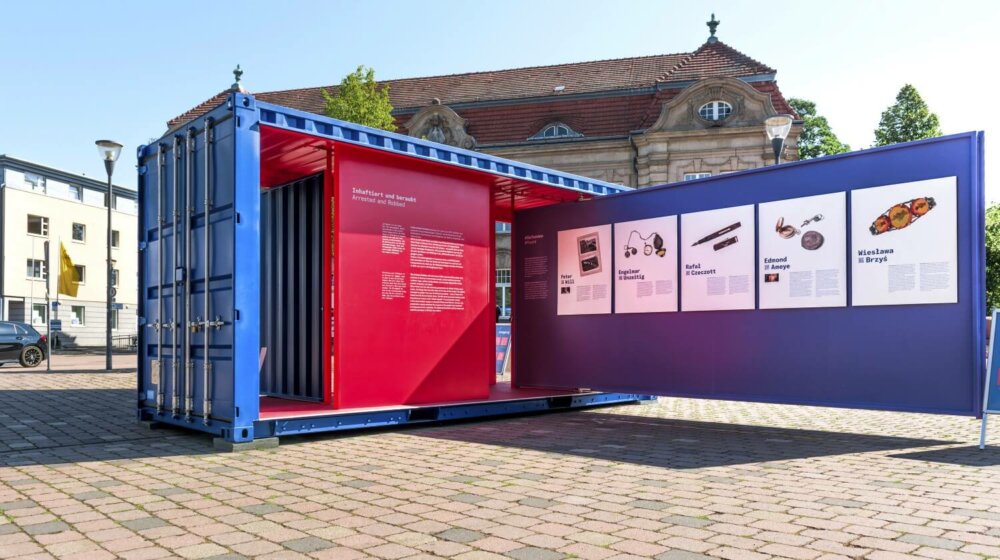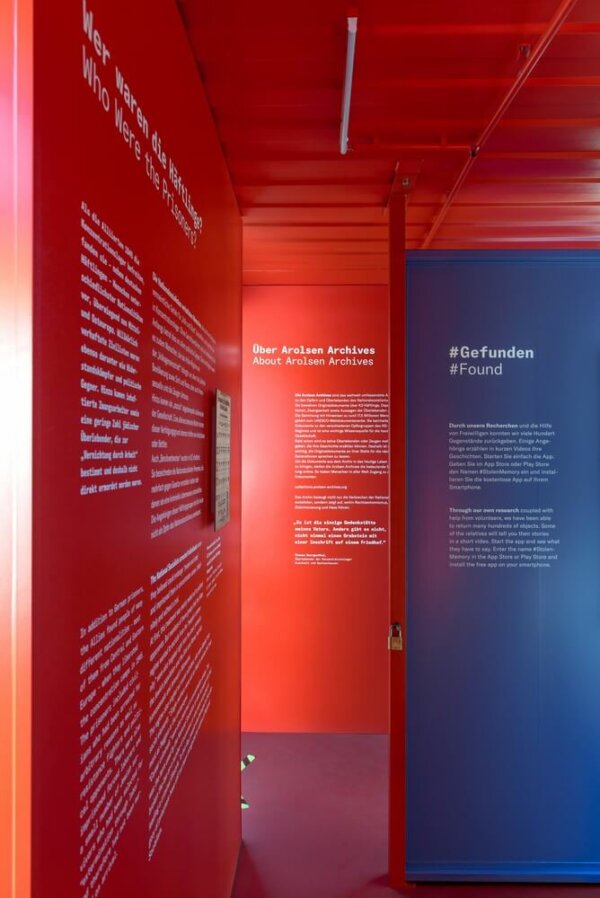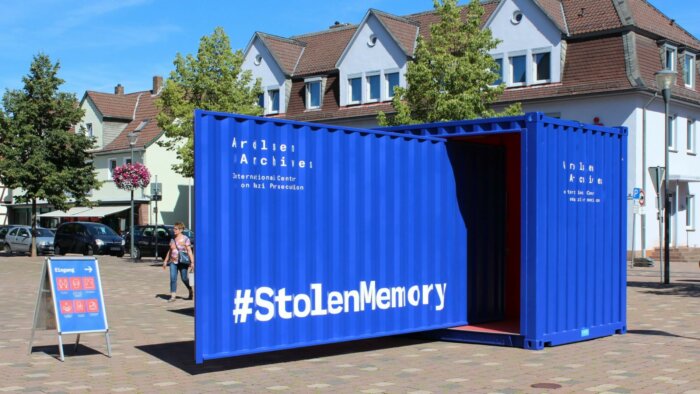Searching and Found

Launch of #StolenMemory traveling exhibition featuring personal items from concentration camp prisoners
The Arolsen Archives will open their new #StolenMemory open-air traveling exhibition on August 14, 2020, in Messkirch, Germany. It focuses on returning the personal effects of victims of the Nazis to their families. The Arolsen Archives have returned more than 100 items to the families of former prisoners each year since the search campaign started in 2016.
- From August 2020, the #StolenMemory exhibition will travel to 20 cities throughout Germany as part of the “Culture in Rural Areas” funding program of the German Federal Commissioner for Culture and the Media. The exhibition will be displayed in a shipping container with side walls that open up for easy access.
- Effects are personal belongings that the Nazis confiscated from prisoners when they arrived at a prison or concentration camp and that have been preserved to this day.
- The #StolenMemory exhibition concept includes not only the content displayed on-site and on an accompanying website, but also a new augmented reality app with videos of individual relatives telling the story of the objects.
- The new interactive website for the exhibition at stolenmemory.org features the exhibition content as well as additional information.
#StolenMemory: A pen, a watch or a few photos
Effects are personal belongings that Nazi officials confiscated from prisoners when they arrived at a prison or concentration camp. The objects include fountain pens, wedding rings, watches and even photographs. In the 1960s, these items were handed over to the Arolsen Archives for preservation. The institution’s mission is to return these personal belongings to the families of the former prisoners. The Arolsen Archives still hold around 2,500 of these personal effects.


The goal: Awareness and support
The exhibition provides background information about the Arolsen Archives and addresses two different thematic areas. The “Found” section features effects that have already been returned to family members, while the “Searching” section looks at effects still waiting to be returned. One important message of the exhibition is that everyone can help the Arolsen Archives find relatives and return objects. Well over 400 of these precious mementoes have already been returned to the families of victims of the Nazis by the Arolsen Archives with the help of volunteers from the Netherlands, Poland, France and other countries.
The new interactive website for the exhibition at stolenmemory.org features the exhibition content as well as additional information.
The meaning of the personal effects
“Many victims of the National Socialists left behind no material traces for their families because the Nazis took everything from them,” says Floriane Azoulay, Director of the Arolsen Archives. The families are therefore often surprised to receive the belongings. “Some of them knew nothing or only very little about this aspect of the lives of their grandparents, parents, uncles and aunts.” This makes it all the more important for the items to be given back to the families. “The effects are often a puzzle piece that falls into place or fills in a blank—and creates a feeling of closeness to the family members who have been lost,” Azoulay explains.

